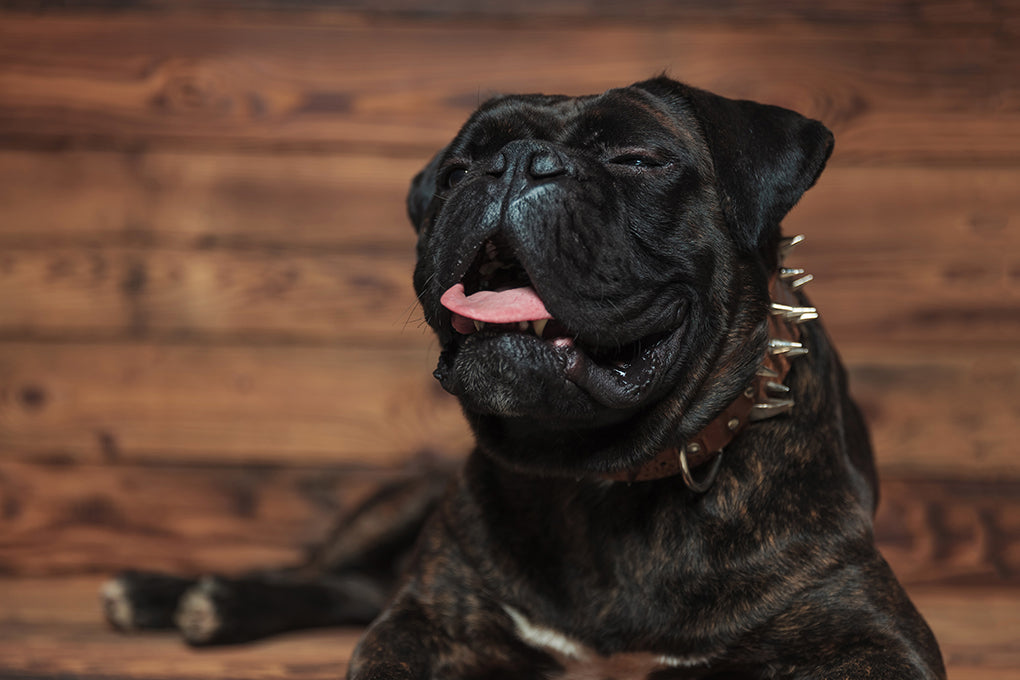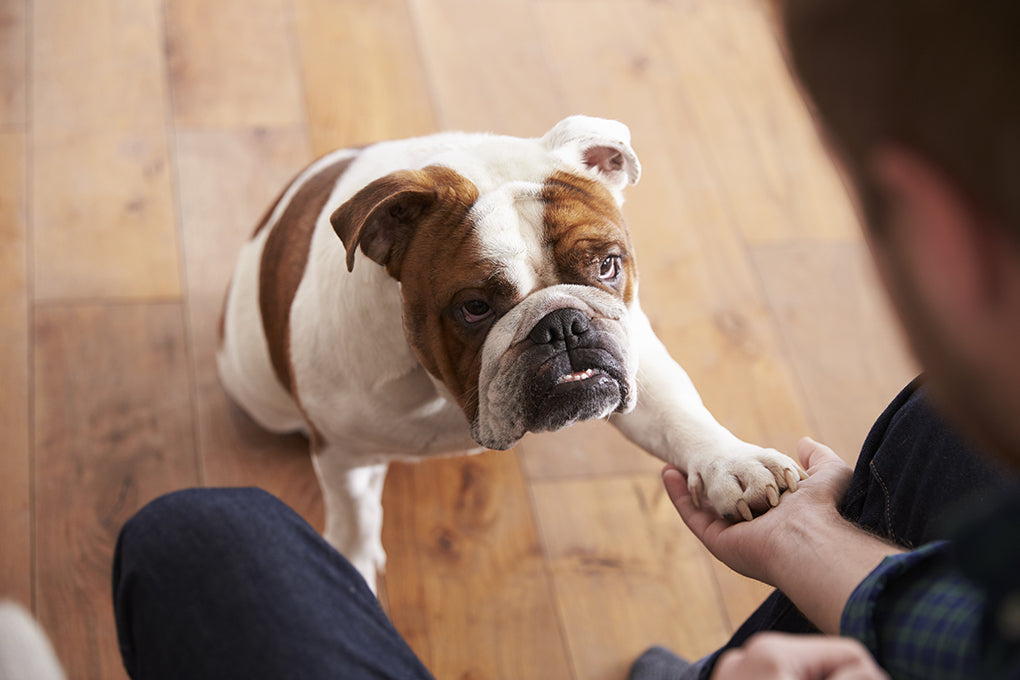
Why is my dog sneezing?
It is well known that in humans, a sneeze can be a sign of allergies, the development of a cold or flu, or simply a dust tickling our nostrils.
But what about our canine companions? Does a dog sneeze for the same reasons we do? Is it normal for a dog to sneeze a lot, or even constantly? Should you consult a veterinarian if this is the case?
The following lines will answer these questions. You will understand why your dog is sneezing. I will also give you some tips to relieve your dog's sneezing fits!
9 Causes of Dog Sneezing
An irritant or foreign body
Just like humans, if an irritant gets into a dog's nasal cavity, they will sneeze. Whether it's dust, a blade of grass, an insect, or a bit of dirt, they sneeze to expel the foreign object . In fact, a dog that keeps sneezing could mean that a foreign object is stuck in their nasal cavity.
Allergies
A dog can sneeze simply by contact with an allergen . Much like the previous point, your dog's nasal cavity is exposed to an irritant. In this case, an allergen, such as pollen, irritates its mucous membrane.
To play, excitement
Dogs, especially small dogs, will sometimes sneeze when they're playing or excited, and that's completely normal. It's kind of their way of signaling to us, or to a canine playmate, that they're having fun.
If your dog only sneezes when playing or excited, then don't worry.
A respiratory system infection
Respiratory system infections can be caused by bacteria or viruses . These are called infectious rhinitis. One such infection we often hear about is kennel cough. It is often characterized by a cough, as the name suggests, but regular bouts of sneezing could also be a symptom.
If this was the cause of your dog's sneezing, he will likely need antibiotics and cough suppressants.
A bad tooth
The premolars and molars in a dog's upper jaw have roots that grow near their nasal passages. An infection in one of these teeth could affect this area and could therefore cause sneezing.
These infections can actually become quite serious. I saw this at the clinic where I work.
A dog with a severely infected tooth. The condition had deteriorated so badly that a gigantic abscess had formed under his eye and surgery was required to save his vision.
A nasal tumor
Tumors are more common in dogs with long snouts, but can occur in any breed. They can cause sneezing and a runny nose. Given their location, they are dangerous. If they continue to grow, they can destroy the structure of the snout and impair breathing. This is one more reason to consult a veterinarian if sneezing persists.
Nasosinusal aspergillosis
Sinus aspergillosis is another type of infection , but this time, instead of being caused by bacteria or a virus, it's caused by a fungus. It's actually caused by inhaling the spores of a fungus. In addition to sneezing, an infected dog may experience pain, nosebleeds, nasal discharge, and a swollen muzzle.
Flat Nose Syndrome
Dogs that are called brachycephalic have compressed nasal passages (flat nose syndrome). I'm thinking of our friends the Pugs, the English Bulldogs, the French Bulldogs, and the Boston Terriers. Given the anatomy of their snouts, they are more prone to sneezing.
So you could consider these sneezes normal, but they are still genetically modified breeds to look that way.
Nasal mites
Mites are microscopic creatures from the large family of mites. Your dog's nostrils and sinuses can become a comfortable home for a particular species of mites, after spending an afternoon digging in the dirt or simply coming into direct contact with an infected dog.
Mites can cause a lot of irritation and therefore sneezing and can even cause nosebleeds.
Read below about our natural remedies that will help your dog get rid of his sneezing episodes.
Reverse sneezing in dogs
A dog can also sometimes produce a sound that's a cross between a growl and a snore. Unlike a sneeze, where your dog violently expels air from its nose, a reverse sneeze involves forcefully sucking in air through its nose repeatedly, producing this rather disturbing sound.
A dog experiencing such an episode adopts a particular posture. It freezes and rests on its elbows. It lengthens its neck, and you will notice large-scale movements of its ribcage. The dog keeps its mouth closed. The dog will appear to be gasping for air.
A reverse sneezing attack can last up to 30 seconds, sometimes 1 minute, and will resolve on its own in most cases.
As with sneezing, these are often caused by an irritant in the respiratory tract. In this case, instead of being in the nasal passage, the irritant (a dust particle, a bit of water or food, a blade of grass, etc.) has lodged further down in the pharynx.
Small breed or brachycephalic dogs are more prone to these attacks. In fact, my little dog Kiwi always has a reverse sneezing attack when we first get home and he's super excited. Once he calms down, it's like nothing ever happened!
As with regular sneezing, it's important to consult a veterinarian if these attacks are frequent. They can determine if something infectious or a tumor, for example, is hiding behind these reverse sneezes. Watch for other symptoms such as a runny nose, cough, lethargy, loss of appetite, etc., to guide your veterinarian towards the correct diagnosis.
Good reflexes when your dog sneezes
As you may have noticed, your dog's sneezing can be due to a wide variety of causes. That's why I'm talking about different natural products here, in order to cover the majority of these causes of sneezing and thus support your dog who has these symptoms. HomeoAnimo ™ suggests the following products:
-
Hairballs : Despite its name, this product isn't just effective for hairballs. It helps expel any foreign matter from the body. It will help your dog sneeze when it's caused by an irritant, a foreign body, or even nasal mites.
-
Seasonal Allergies : As the name suggests, this product is especially good for environmental allergies. If you think your dog is sneezing because they have allergies, this product is for them.
-
Silverpet : Colloidal silver is known to strengthen the immune system, so it's a great help if your dog is sneezing due to a respiratory infection or a bad tooth. This product also supports the respiratory system, making it an excellent choice for other types of infections, such as nasal and sinus aspergillosis.
- Piptoanimo : This product is a valuable aid in improving your dog's quality of life if they have a tumor or cancer. It strengthens the immune system. In the event that a tumor affects your pet's respiratory system, this product will treat the symptoms of sneezing.
Finally, use your best judgment to determine whether your dog needs to see a veterinarian or not. Your dog's sneezing or reverse sneezing may be trivial, but it could also be a sign of a more serious cause that requires treatment. Our natural products can be a great help in relieving your dog of these symptoms.
Stay on the lookout for things that might irritate your furry friend's nose!




















4 comments
Bonjour Madame, Monsieur FARGIER,
Merci de nous contacter au sujet de votre chien. Nous allons vous envoyer un mail pour mieux comprendre sa situation et ainsi pouvoir vous aider au mieux !
Bien cordialement,
HomeoAnimo.com
HomeoAnimo
Bonjour
Mon Jack Russel 14 ans fait des éternuements inversés qui s agravent la nuit malgres respyphitol en continue.
Crises d éternuements nez qui coule semble encombré la nuit.
Puis donner dans la gueule argent colloïdal silver 40 ppm?
Merci
Fargier
Bonjour Mme Amigoni,
Merci de nous donner des nouvelles de Litchi. Selon son dossier, nous vous avions fait parvenir quelques suggestions dernièrement, pouvez-vous nous dire quels changements vous avez remarqué suite à ces conseils? À bientôt!
Homeoanimo
Mon chien litchi fait des éternuements renversé quel médicament vous me conseille merci
AMIGONI
Leave a comment
This site is protected by hCaptcha and the hCaptcha Privacy Policy and Terms of Service apply.